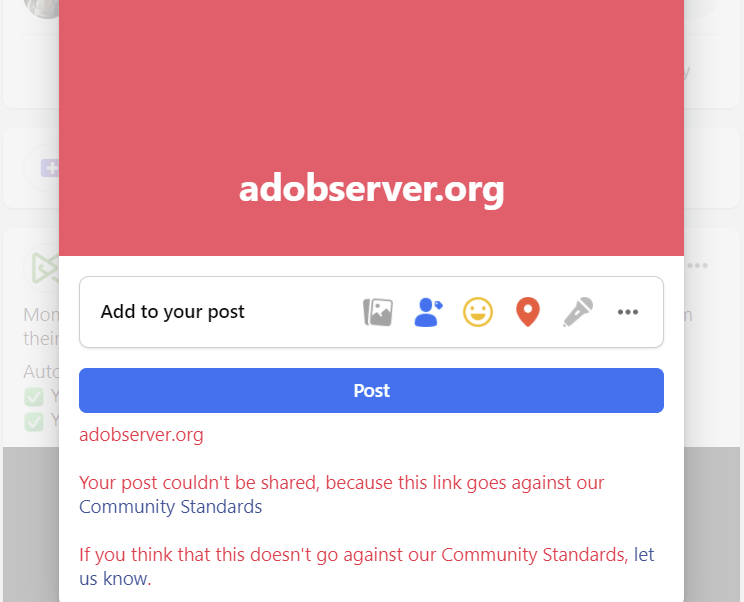SUMMARY
This is AI generated summarization, which may have errors. For context, always refer to the full article.

Facebook on Wednesday, August 4, banned the accounts of New York University (NYU) researchers studying the microtargeting of political ads on users.
In addition to disabling “the accounts, apps, Pages and platform access associated with NYU’s Ad Observatory Project and its operators,” Facebook had also apparently banned the Ad Observatory Project’s website, adobserver.org.
When a user tries to put “adobserver.org” in a post, Facebook blocks the post, saying “Your post couldn’t be shared, because this link goes against our Community Standards.”
The adobserver.org site has a detailed explanation about and links to the browser extension for Chrome and Firefox – which remain active – alongside the team behind the project, as well as details on how the project handles the data.
Facebook said the researchers’ Ad Observatory Project is violative of the privacy of users but critics have fought back, saying what the company is trying to keep private is information on how political ads are targeted, and which users are being shown which ads.
Microtargeting allows an entity, a politician, for example, to craft an ad designed to appeal to a certain demographic, and then a different ad to appeal to another demographic. The danger of the system is that it makes it easy for a political entity to craft tailor-made messages for very specific demographics, resulting in people having vastly different information on one candidate.
The Ad Observatory Project was attempting to see how people were being targeted. A pillar of the project was the Ad Observer browser extension that allowed users to share to the researchers the ads that they’re seeing – data from which the researchers inferred targeting information.
Facebook slammed the extension but Mozilla said that Facebook’s claims about it are wrong.
“We decided to recommend Ad Observer because our reviews assured us that it respects user privacy and supports transparency. It collects ads, targeting parameters and metadata associated with the ads. It does not collect personal posts or information about your friends. And it does not compile a user profile on its servers,” said Mozilla. – Rappler.com
Add a comment
How does this make you feel?
There are no comments yet. Add your comment to start the conversation.